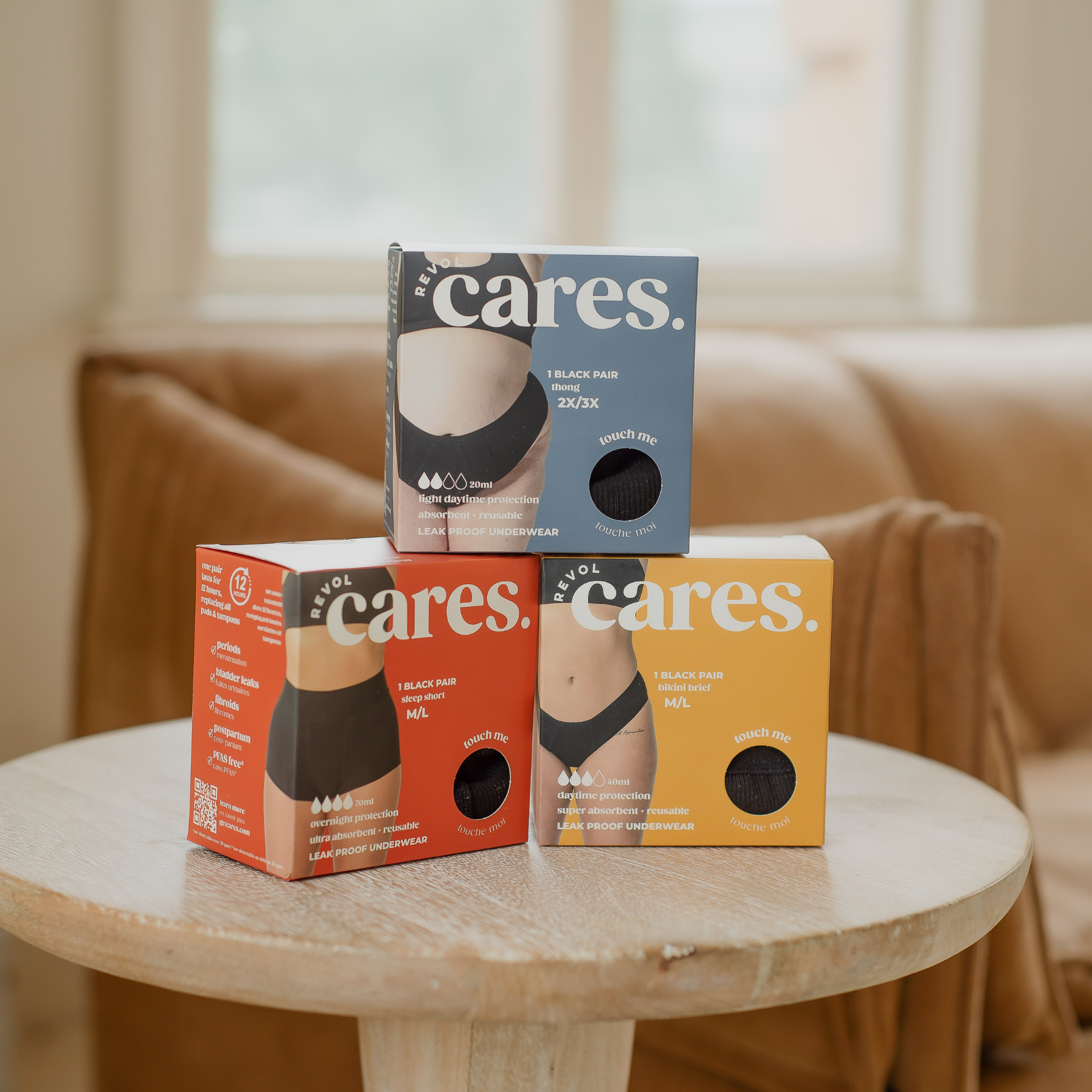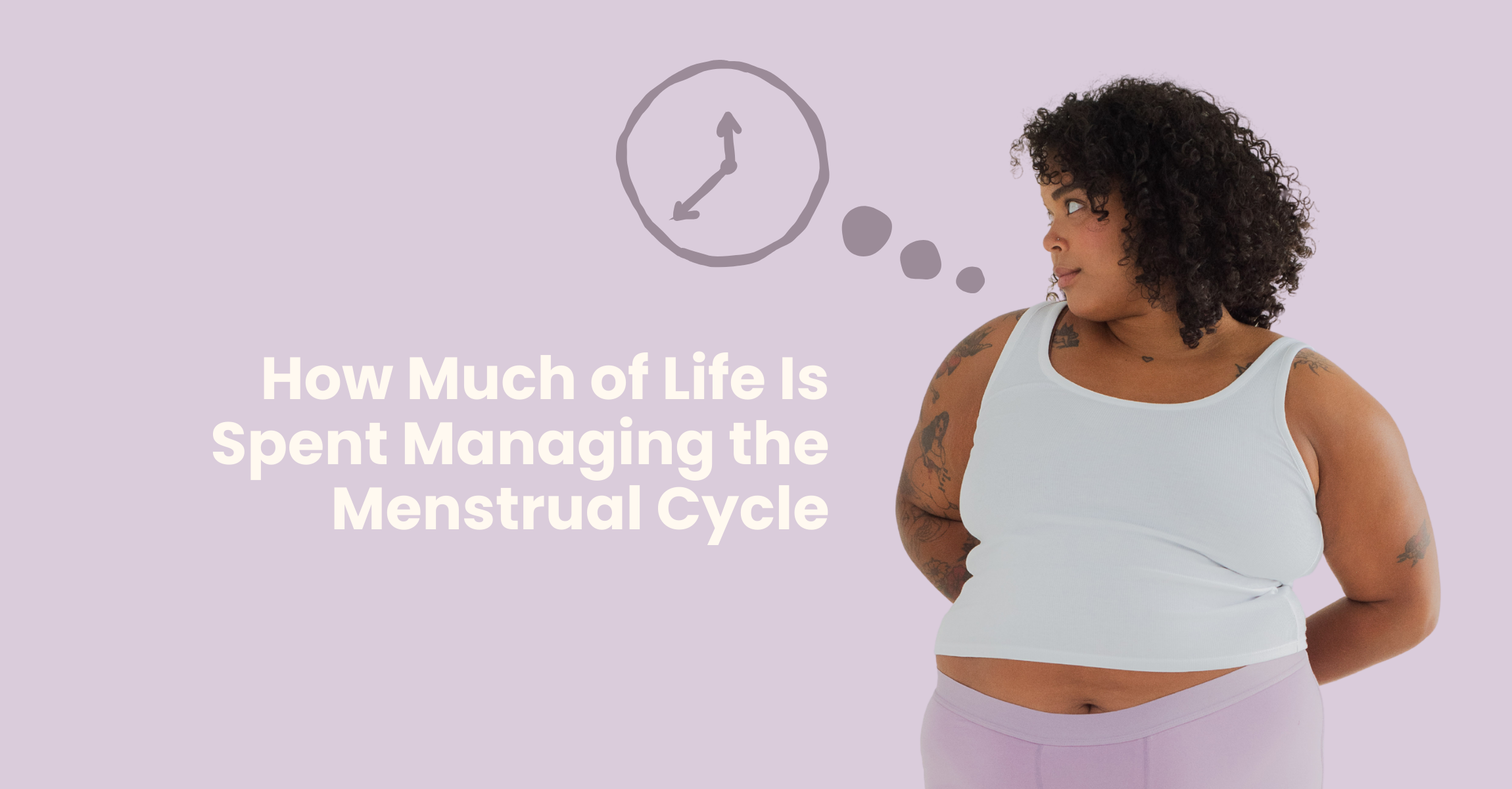Dealing With an Unpredictable Period? You’re Not Alone.
One month your period shows up early. The next? Crickets. Spotting out of nowhere, cramps without bleeding, or periods that last way longer than usual — irregular cycles can make you feel totally out of sync with your body.
But here’s the thing: While your hormones might be doing their own thing, there are ways to get back in rhythm. Whether your period is consistently inconsistent or just occasionally chaotic, this guide will help you manage it (without spiraling into panic every time it’s late).
First Step: Know Your Cycle’s Signals
Your period isn’t just a “once-a-month” event — it’s part of a bigger hormonal cycle. If your flow is irregular, start paying attention to more than just when (or if) you’re bleeding.
Try tracking:
-
Your mood
-
Discharge (type + amount)
-
Cramps, bloating, acne
-
Energy and sleep patterns
-
Appetite or cravings
Even if your actual period doesn’t come like clockwork, these symptoms can give you insight into where you are in your cycle — and what your body needs.
🖊️ Use a period app, calendar, or just your notes app. The goal isn’t perfection — it’s building body awareness.
Daily Habits That Can Help Regulate Your Period
While every body is different, these gentle changes can often help get your cycle into a more consistent rhythm:
🥗 Nourish Your Body (Yes, Enough Food!)
Your hormones are deeply connected to your nutrition. Restrictive diets or skipping meals can throw off your period. Aim for balanced meals with:
-
Healthy fats (avocados, olive oil, nuts)
-
Complex carbs (quinoa, oats, sweet potatoes)
-
Protein (tofu, beans, eggs, chicken)
-
Leafy greens and colorful veggies
If you’re dealing with irregular cycles, under-eating could be the root cause — especially if it’s paired with overexercising.
🛌 Sleep Like It’s Your Job
Your body resets while you sleep. Poor or irregular sleep messes with your circadian rhythm and your hormonal rhythm. Aim for 7–9 hours a night, ideally going to bed around the same time each evening.
Hot tip: Magnesium-rich snacks (like bananas or almonds) before bed can help relax your body and improve sleep quality.
🧘♀️ Reduce Stress (Your Hormones Will Thank You)
Chronic stress increases cortisol, which can suppress ovulation — a key part of your cycle. You don’t have to quit your life to reduce stress, but even 10–15 minutes a day of calm can help:
-
Deep breathing
-
Gentle yoga or stretching
-
Journaling
-
Walks outside (sunlight = bonus points)
🏃♀️ Move — But Don’t Overdo It
Exercise helps balance hormones and manage stress — both important for regular periods. Just make sure you’re not pushing yourself to the point of exhaustion every day.
Try this rhythm:
-
Luteal/menstrual phase → gentle movement (walking, yoga)
-
Follicular/ovulation → more active workouts (cardio, strength)
Your cycle and your workouts can work together when you tune in to your body.
What Products Should You Use If You Can’t Predict Your Period?
Unpredictable bleeding is annoying — but worrying about leaks doesn’t have to be part of your day. If you’re dealing with surprise spotting, mid-cycle discharge, or heavy flow days that suddenly hit, the right period underwear can save you (and your sheets).
Revol Cares Picks for Irregular Cycles:
-
Freya → Everyday comfort + high absorbency = your "just in case" MVP
-
Margo → Sleek + breathable — ideal for discharge or light spotting days
-
Charlie → Ultimate protection for heavy days or overnight surprises
✨ All our styles are PFAS-free, leakproof, and built for life’s unpredictable moments.
👉 [Explore Period Underwear That’s Got Your Back →]
When to Talk to a Doctor
Irregular cycles are super common, especially in your teens, early 20s, and around big life changes. But there are times when it’s worth looping in a healthcare provider:
-
You’ve missed 3+ periods and aren’t pregnant
-
Your periods are suddenly painful or way heavier
-
You’re experiencing hair loss, acne, or weight changes
-
You’re trying to conceive and can’t track ovulation
-
Your gut says something’s off (always worth listening to)
Getting bloodwork, checking for hormonal imbalances (like PCOS or thyroid issues), or doing an ultrasound can bring clarity — and relief.
Final Thoughts: Irregular Doesn’t Mean Broken
Your body is always talking to you — and irregular periods are just one way it speaks. Instead of seeing it as a problem, see it as a cue: slow down, tune in, and care a little deeper.
Whether your period is early, late, or doing its own thing, you’ve got options — and we’ve got your comfort covered.
💌 Want more cycle-friendly tips like this?
[Join our newsletter for real talk, helpful info, and exclusive offers →]





